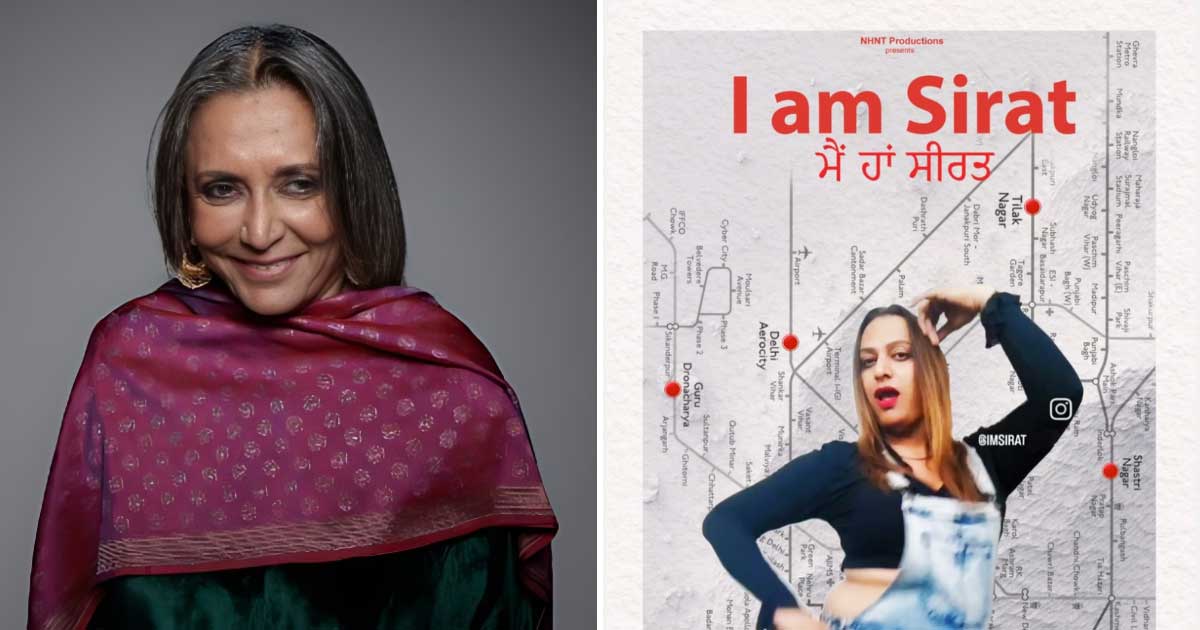Deepa Mehta & Sirat’s collaborative film ‘I Am Sirat’ recently premiered at the 12th Dharamshala International Film Festival sparking discussions on representation and authorship in film. Sirat’s self-recorded videos depict her dual life and naturally prompt contemplation on the inherent complexities of representation. What follows here is an attempt to take up these ensuing questions of representation and authorship, and then to make a not-so-radical suggestion. There are also some questions left untouched due to paucity of time and space like how to judge such art. Despite this, one thing is clear: start worrying less about FILMS ABOUT and more about FILMS BY!
Killers of the Flower Moon
Now that I have your precious attention, allow me to direct it towards an exciting thing that recently happened in the space of representation in film. I Am Sirat had its Asia premiere at the 12th Dharamshala International Film Festival (following its world premiere at the Toronto International Film Festival). It is a playful, rousing collaboration of noted director Deepa Mehta with Sirat, a transgender woman living in Delhi. Allow me this segue to talk about yet another interesting development in the world of documentary filmmaking in India and ensuing questions of representation and authorship.

Shoutout to DIFF documentaries, challenging the form, pushing the boundaries
With a robust roster of both shorts and features, 2023 proved to be a stellar year for documentaries at DIFF. A resounding 30+ documentaries captivated audiences throughout the festival. Notably, Nishtha Jain’s The Golden Thread; a highly textured documentary feature film about labor in a fading world took an interesting approach to storytelling with an innovative fictionalized soundscape. Picture yourself in a jute mill but instead of the incessant sounds of heavy machinery that drown every other sound out, you hear the almost inaudible, softer sounds- of the workers breathing heavily or of jute being swept across the mill. What’s even more interesting is that during the Q&A after the screening, the director reveals how her film has set off the Censor Board of film certification to actually lay down criteria for the clear demarcation between fact and fiction. How awesome is that?
I Am Sirat
However, returning to the star of the show, or in this case, the star of this discourse- Deepa Mehta and Sirat’s odd and energizing film. I am Sirat made the audience erupt in thundering applause, to the point where the following Q&A session had more comments than questions. According to Sirat, who was present at the screening, it all happened because of a “aap mere upar film banaona”, and of all the ways Deepa Mehta could’ve obliged, she chose the most radical way. And that’s precisely why I would like to use this space to talk about the film and then around the film. Made up of videos that Sirat filmed on her mobile phone on selfie mode and later sent to the film’s editor over WhatsApp, the film is, in the simplest of terms, a documentation of Sirat’s life.
Her life however, is not so simple- for she leads a dual existence- as Aman, at home with her widowed mother, and as Sirat, at work, with friends, on Instagram, and now even the movies! Sirat does magical things with her film; there’s not only self-expression, but also artistic expression. As if self-recorded videos of her in quick narrative succession weren’t enough, her Instagram reels intermittently spawn up in between this narrative, but at first you’d think it’s just Sirat having fun. False! The placing of these generally masti-heavy, but at times grim, 30 second videos with highly self-referential music is extremely metatextual; it’s also Sirat taking the narrative further, her narrative further, by taking complete control of it.

On Representation
Now, is this good representation? If it takes you a second before you realize it’s a stupid question, fret not, for you are not alone. Not to say the question doesn’t have an answer, it does, except the answer’s not important. What’s important is asking the question correctly- which is- good representation for whom? Remember Super Deluxe? A 2019 film that was dismissed by transwomen who believed it was extremely regressive and also made fun of them. Well, that same film was famously lauded by critics and progressives alike. The converse of this happened with the 2011 film Kanchana. Point is, people in any given community are bound to have different opinions on art made in their name, to the point where we will always be stuck with some demographic that takes offense, and some that holds the same work to their heart- think Dostana.
On Authorship
So, why not shift the conversation from representation to authorship? Instead of playing this absurd, futile game of ‘Who Will Be Offended?’ every time you make a film about (or from) the fringes, why not just hire the people from these fringes to tell their inherently intersectional story in their inherently intersectional voice? This is not only representation at its very best, but also a way for all this ‘good’ that’s allegedly happening to these communities to actually translate into material benefit by telling these stories and not just be an abstract thing (even trans persons have to pay rent!). Of course, this does not guarantee world class storytelling, as is the case with I Am Sirat, but hey, at least it’s Sirat’s story, and no one can take that away from her. At least, it keeps the conversation from being centered on representation with its many caveats, and makes it centered on authorship- a welcome change!
Yash Mittal is a student pursuing Economics Hons. from Jamia Millia Islamia.
Edited by: Gunjit Verma






GIPHY App Key not set. Please check settings